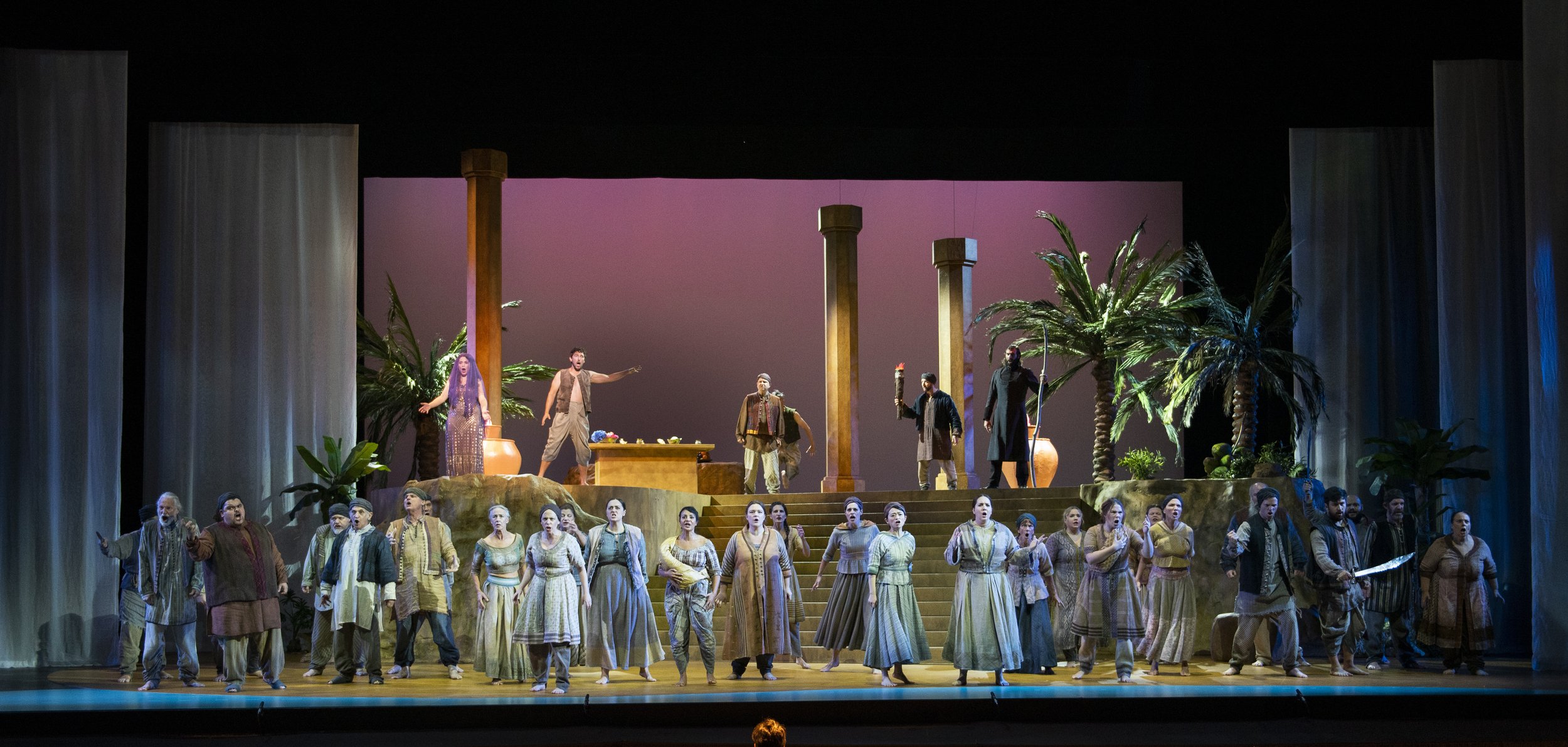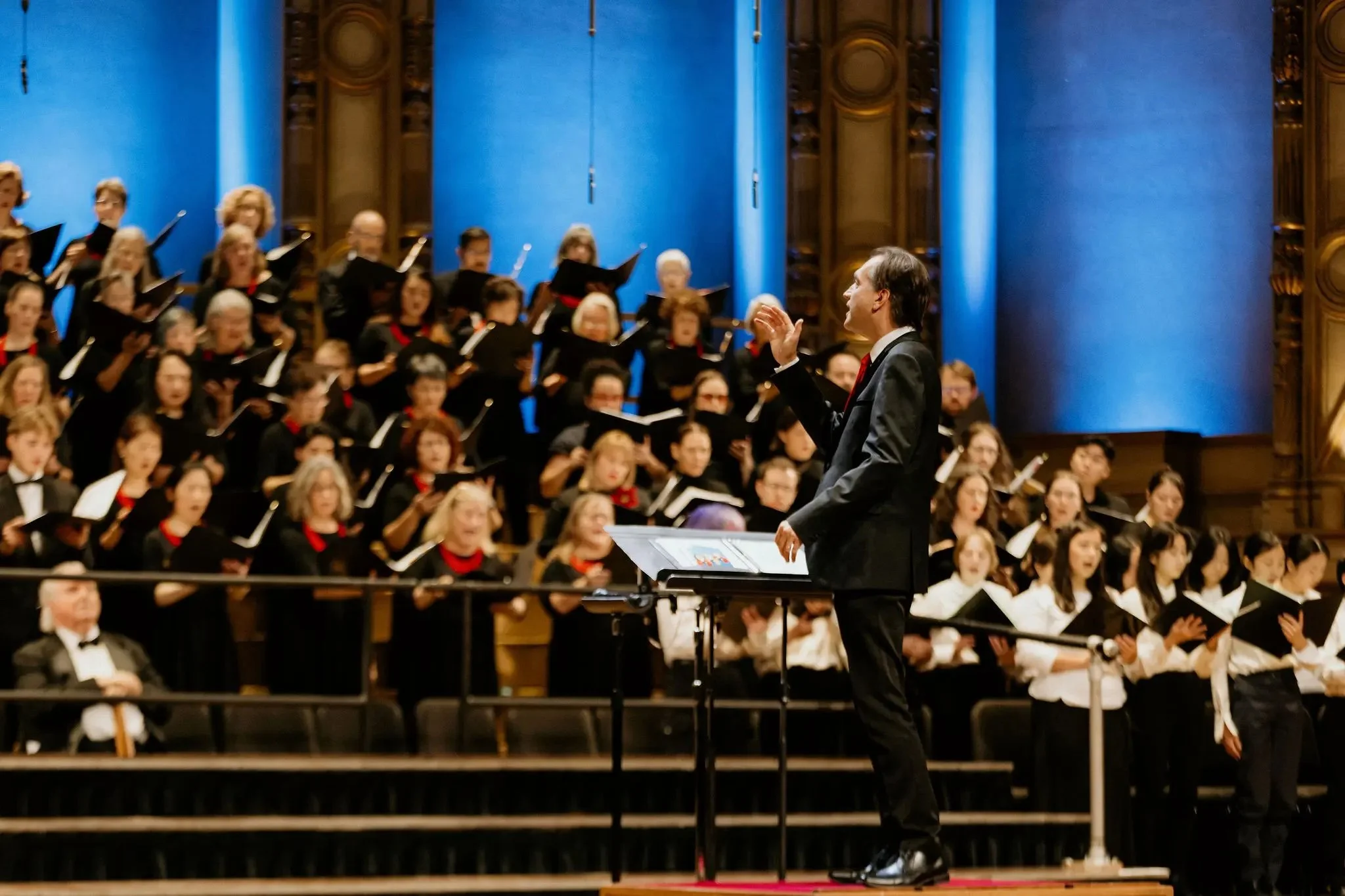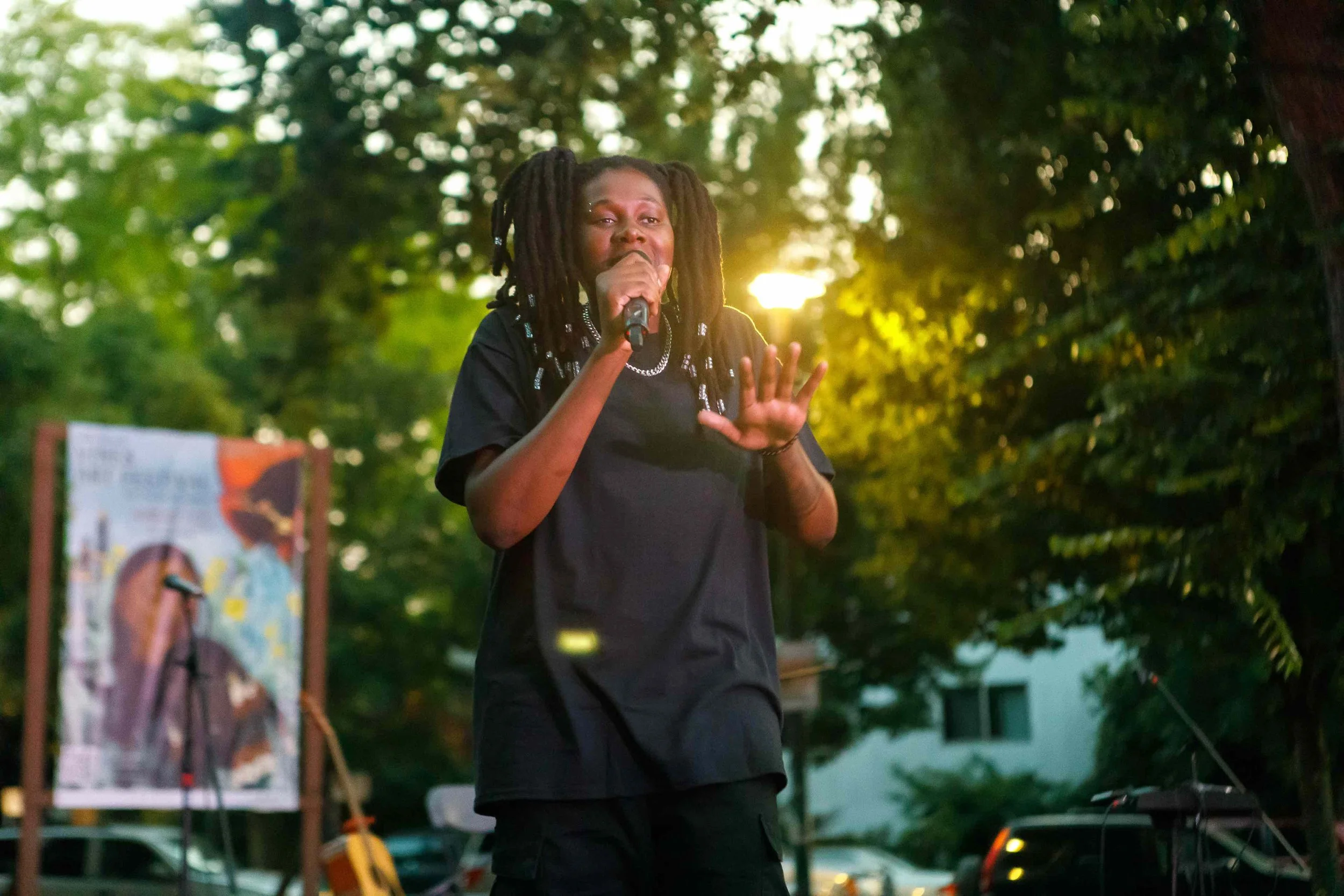Review: Lush music, fresh cultural take at Vancouver Opera's The Pearl Fishers
Production brings strong singing, and a new lens, to Bizet’s 19th-century piece
Vancouver Opera’s The Pearl Fishers. Photo by Emily Cooper
The Pearl Fishers continues at the Queen Elizabeth Theatre on October 27 and October 30, presented by Vancouver Opera
SUMPTUOUS CHORAL NUMBERS, lavish orchestrations, and lush duets aside, Georges Bizet’s The Pearl Fishers poses a dilemma in 2022—a fact that may explain why it hasn’t been staged here in three decades. It draws on flawed, late-19th-century stereotypes of old Ceylon—ones that existed several oceans away from what is now called Sri Lanka. And usually, the work by the French composer with librettists Eugène Cormon and Michel Carré is performed by a non-South Asian cast.
In Vancouver Opera’s new production, director Rachel Peake addresses the setting right out of the gates, framing the show as taking place in Bizet’s imagination as his artists arrive for rehearsal. At the same time, there are cheeky opening titles that describe the work as one written based on falsehoods by two men who had never visited Sri Lanka. Then, she interweaves four South Asian dancers, dressed in jewel tones, throughout the production. It’s a bold choice: 19th-century French opera often featured ballet (although not usually in The Pearl Fishers), but these figures remind us of the East and its diaspora. The added bonus is that the choreography by Krystal Kiran livens up some of the action.
Photo by Emily Cooper
This otherwise traditionally staged opera does reflect that almost dream-Ceylon, taking place on a set that looks like an exotic, 18th-century painting, with its too-green palm trees and a pinky sky that later carries the floating embers of a burning village. Costumes, too, lean on fantasy more than cultural accuracy, from the full-skirted peasant dresses to the love object’s transparent, liquid-lavender-silver gown in the finale.
Does the opening disclosure excuse all of the show’s dated “orientalism”? That’s up for debate—but at least it creates a clear lens to watch the opera through.
Still, one thing is clear: musically, the cast and orchestra deliver the French Romantic goods—far beyond the famous tenor-and-baritone duet “Au Fond du Temple Saint” that nine out of 10 Vancouver Opera fans came to witness on opening night.
The plot itself plods a bit in its opening half, only really picking up tension in its final act. In a small seaside village of pearl fishers, Zurga and Nadir reunite after many years, and in the famous first-act duet, they pledge never to let a certain woman come between them again. Lo and behold, to precisely no one’s surprise, a veiled priestess arrives and turns out to be the Leïla they once quarrelled over. But she’s sworn to chastity to give the local fishermen spiritual protection. So when Nadir pays a nighttime visit to her perch on a seaside rock, it raises the ire of high priest Nourabad (sinister and swath-cutting bass-baritone Vartan Gabrielian).
Photo by Emily Cooper
Effortlessly expressive tenor Aaron Blake (Nadir) and charismatic baritone Phillip Addis (Zurga) live up fully to the expectation of their showpiece duet—not just musically, but in their psychological and emotional depth. On the podium, rising conductor Kamna Gupta backs the voices with fully realized colours in the Vancouver Opera Orchestra, holding a perfectly modulated tempo that never rushes and never drags. In an inventive touch, a dancer in yellow moves above the two men while they sing—a sort of sensual apparition foreshadowing what will eventually drive them apart.
But the show is more than a one-hit wonder, with so much more on offer musically. As Leïla, Lebanese-Canadian soprano Miriam Khalil shows her full powers in the showstopping Act 3 duet, “Qu'ai je vu?”, with Addis. Together, they fill it with complicated shades of passion, resentment, and remorse. Khalil has a notable burnished warmth in her lower register that matches the fiery allure of this characterization—and differentiates it from other Leïlas.
As for the chorus, it finds every gorgeous layer in Bizet’s big numbers, weaving them into lustrous brocades. During the storm at the end of Act 2, its members explode across the stage with all the hues of anguish in the "Brahma divin Brahma!".
In the end, this production's biggest pleasures come from the rare chance to listen to Bizet's music live, even if the "Ceylon" they're singing about—as acknowledged off the top—is frankly absurd.















